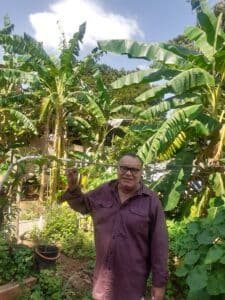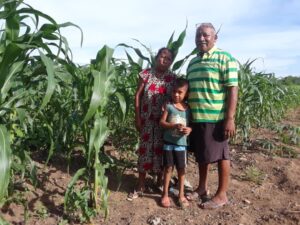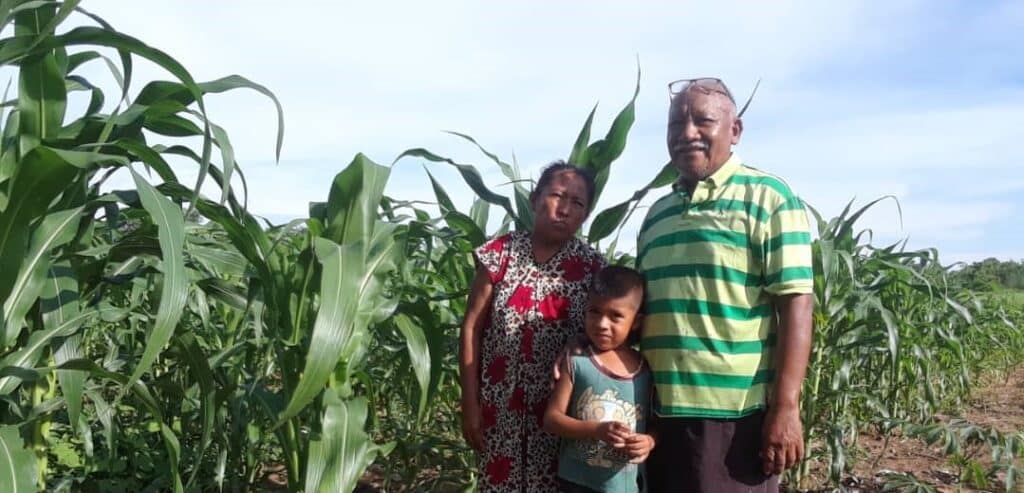Sowing for the Fullness of Life: The Experience of the Evangelical Pentecostal Union of Venezuela
The leaders and families of the Evangelical Pentecostal Union of Venezuela have reasons to celebrate. They finally see the fruits of their constant work through recent years. Amid scarcity created by the economic sanctions that the United States still impose on Venezuelans, people resist by creating their own means of subsistence through troubled times. One of those means consists of rediscovering the blessings of sustainable agricultural projects.

The Reverend Doctor Gamaliel Lugo, UEPV’s General Bishop, told me how the initiative was developed. “There is a productive yard in each house and congregation. All of our congregations are developing initiatives for sowing. This is part of our focus on endogenous development, guided by a theological and pastoral formation for a new ecclesiology in the UEPV. We are parting from a socio-productive perspective for the socioeconomic development of the Church, families, and communities. The UEPV has followed this guideline, creating its own indigenous educational and training model. It is generated and sustained mainly with the efforts and human talents in our churches and our country to strengthen the experience of productive yards with the program “All Pentecostal Hands to Sowing.” Thus, each Church in rural and peasant areas can ensure that its members, including children, can spend time planting in the churchyard. We are developing this initiative at family patios too.
Let me share some examples. The productive yard of the SINAI indigenous Church has been working with cassava. Corn, beans, and smoked. In the countryside, the Los Dos Olivos Church works with black beans. On the hill of Sanarito, the churches work with coffee. They are also developing a crop of medicinal plants such as moringa, oregano, mint, holy herb (“hierba santa“), mint, paradise, basil, hidden flower, aloe vera, turmeric, India cane, “brusca,” nightshade, soldered, “malojillo,” pennyroyal, and ginger, among others. In addition, some families work with fruit trees like mango and papaya or “lechoza” and guanabana.”

Exeario Sosa Ocanto, UEPV’s Bishop for Youth Ministries and Coordinator of Projects Development, shared with me the virtues of one of the fruits they promote through this initiative: the “Topocho.” “Topocho is one of the most accessible foods in Venezuela. It is a species between banana and banana with a very distinctive flavor from the rest of its family. Green, cooked, or roasted, it is usually used to accompany dried fried meat and to prepare the Creole sancocho. Although it is mainly eaten parboiled or fried as a tostón, it has a sweet and delightful flavor when ripe, so it can be eaten raw like a plantain. It is often used as a substitute for bananas in many regions. Its cultivation is mainly intended for domestic consumption. Despite being from the banana family, the topocho banana is slightly different. It is a healthy fruit, although it is about 5 calories more than the classic plantains and bananas. It can be used against stomach ailments and symptoms such as diarrhea. On the other hand, this fruit contains high amounts of minerals, especially potassium, an essential electrolyte for the nervous system and muscle function. It is recommended to athletes because it helps them recover more quickly after intense training or competition.”
Bishop Lugo can summarize the experience using the following phrase or pronouncement, “If you can do it, don’t buy it, do it with your own creativity; if you can produce it, do it with your own effort; if you can do it now, do not leave it for later, do it now; if you can do it, do it, because if you don’t, you will not be able to know what you are capable of; if you can reuse it, do it, don’t become like the ones that ignore what they are capable of.”. So, in times of resistance, it is a blessing to recognize the God that promises that “will send rain on your land in its season, both autumn and spring rains, so that you may gather in your grain, new wine and olive oil.” -Deuteronomy 11:14. UEPV is finding “new wine and olive oil” to bless their families and communities. That is an exciting way to live the fullness of life.
To support the Evangelical Pentecostal Union of Venezuela in its educational and sustainable development ministry, you can financially contribute to Global Ministries. Information on sending gifts to Global Ministries online, by check in the mail, or by phone can be found at www.globalministries.org/give.

